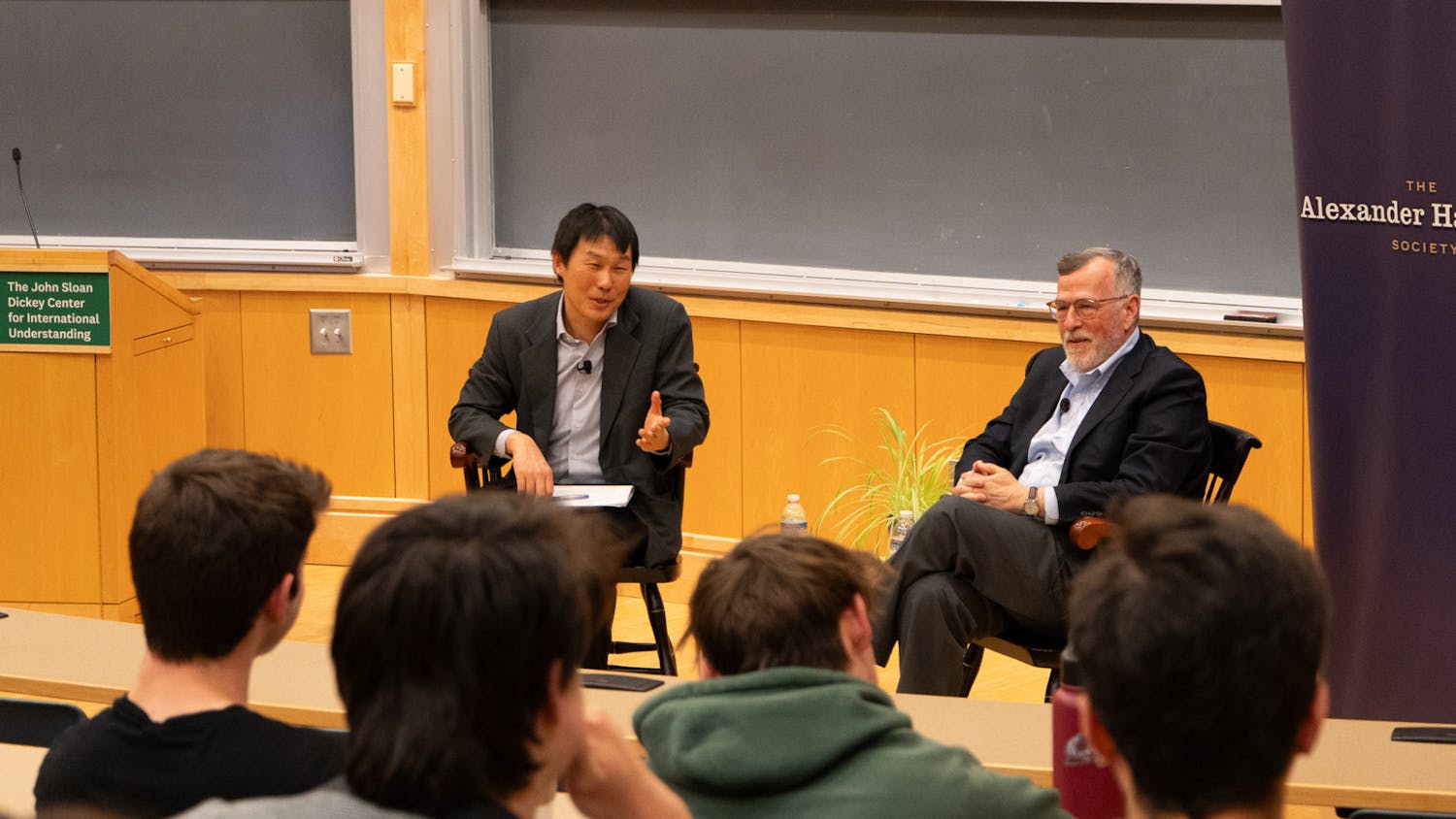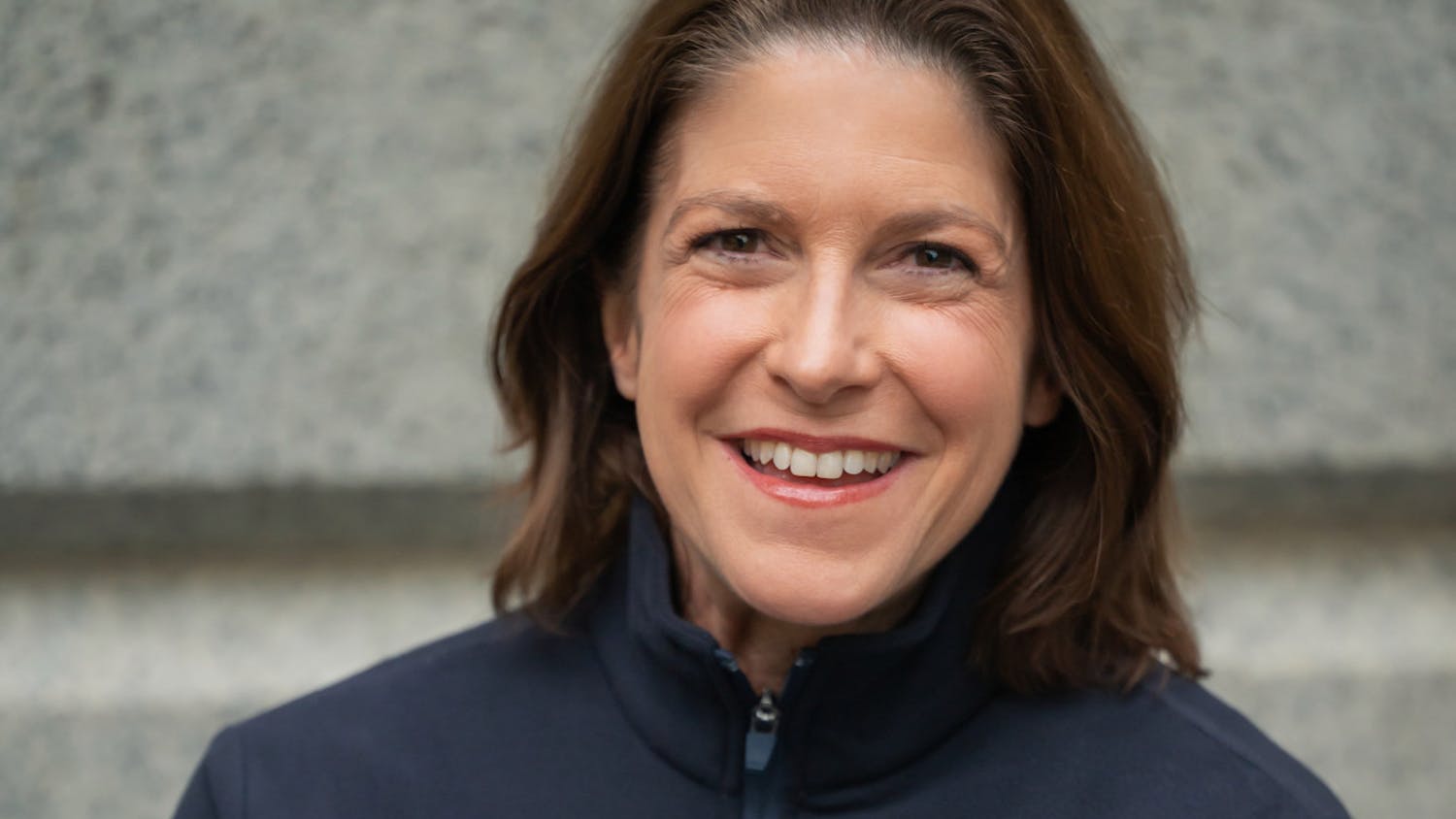Although Dartmouth has shown improvement in certain university ranking reports the College improved two places in the 2011 U.S. News and World Report's annual "Best University" ranking and jumped more than 60 places in Forbes Magazine's annual list it continues to lag behind in international lists, such as Times Higher Education's list of world schools, that place a high value on an institution's research-orientated graduate programs. U.S. News ranked the College first in the nation for best undergraduate teaching for the second year in a row, suggesting that Dartmouth fares better in rankings that heavily weight factors accounting for students' academic performance.
The College's rise in the U.S. News ranking may be attributed to changes in the way the rankings are calculated this year. For the first time, the rankings counted a survey of high school counselors and placed less emphasis on evaluations by officials at peer institutions, according to the U.S. News website.
The U.S. News ranking formula places a 77.5 percent weight on academic quality measures such as graduation rates while the remaining 22.5 percent is based on assessments by high school counselors and officials at peer institutions, according to the website.
Graduation rate performance the difference between an institution's actual and predicted graduation rate was also weighed more heavily this year, accounting for 7.5 percent of an institution's score. Last year, the ranking weighed graduation rate at only 5 percent, the U.S. News website said.
Dartmouth's pre-professional graduate programs also rank highly in most national surveys, according to several college counselors interviewed. The Tuck School of Business ranked second in both The Economist's 2010 "Global full-time MBA" list and the Forbes business schools ranking.
Dartmouth tends not to fare as well in many international rankings, which often use formulas that favor institutions with a large number of graduate students, according to Sally Rubenstone, senior advisor to the university advising website College Confidential. The Times Higher Education, which is based in London, placed Dartmouth 99th in its "World University" rankings and 57th in the "Top North American Universities" list.
"Not everyone on the planet views college prestige and college value through the same lens as Americans do," Rubenstone said.
Dartmouth is "renowned" for its pre-professional business, engineering and medical graduate schools, but not for the more research-orientated graduate programs that international surveys favor, according to Rubenstone.
In contrast with American surveys, international rankings often weigh factors such as the ratio of doctorates to bachelor's degrees awarded within an institution, the number of prestigious international academic prizes bestowed to faculty members and the number of citations faculty members have received in academic documents, Rubenstone said.
Dartmouth fares better when rankings factor institutions' admission rates, graduation rates and applicants' class ranks, and SAT scores, she said.
Several counselors interviewed said they advise their students to not place too much importance on rankings when making college decisions.
"Don't be too married to these rankings, because if you look at the different lists, you'll see different results," Rubenstone said, adding that most families she works with concentrate on the more prominent U.S. News ranking.
Counselors said international students are more likely than their American counterparts to evaluate university rankings in their college decision-making process.
"I've done speaking engagements in China, and that's all they want to hear," said Bev Taylor, founder and director of The Ivy Coach, a counseling service whose clientele includes many families from China and India.
International students are more likely to rely on university rankings because they start out with less information about the American higher education system, according to Michael Goran, founder of IvySelect College Consulting.
Unlike American students, students from other countries are not exposed to first-hand accounts of American institutions, according to Kelly Herrington, director of college counseling at University Prep, a high school in Seattle.
Herrington said he encourages students to focus on assessing the criteria highlighted in rankings instead of an institution's placement. Statistics like the student-to-faculty ratio, which demonstrates an institution's commitment to undergraduate teaching, are the "real benefit of rankings," he said.



